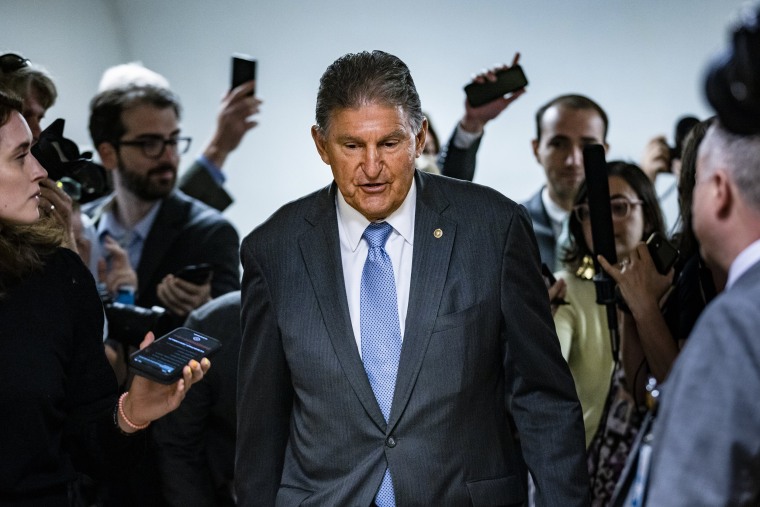Democrats have been struggling for some time to enact legislation — like the For the People Act, which Senate Democrats will try and then fail to bring to the floor for debate on Tuesday — to protect the rights of Black and working-class voters, many of whom Republicans have long been trying to disenfranchise. Sen. Joe Manchin, D-W.Va., had put together a voting rights bill that he hoped could pass the Senate without modifying the filibuster (i.e., with some Republican votes); Republican leaders, however, rejected his version as well.
Democrats push for voting rights for Black people in part because they know that Democratic electoral fortunes depend on defending Black voters. When Black voters are discriminated against, all Democratic voters are harmed.
Democrats, it seems, are fighting for Black people’s rights not out of guilt, but out of a recognition of shared interests. That’s exactly the kind of activism that Emma Dabiri recommends in her new book “What White People Can Do Next: From Allyship to Coalition,” which comes out Tuesday, June 22.
Dabiri’s book is an expansion of a post she wrote after the George Floyd protests when many white people had asked how to become better allies and use their white privilege to help in the fight against racism.
When one person is stripped of their rights, everyone suffers.
She believes even framing the issue that way is not helpful. “Allyship,” she says, is a way of “offering charity at the expense of solidarity.” In addition, she worries that focusing on allyship and privilege entrenches the sense that there is a real category of “white people” who all have privilege, shared experiences and shared values, when race is a purely social construct that changes over time.
When you tell people that they are privileged and that they need to sacrifice what they have for the sake of the less fortunate, Dabiri argues, there are two possible outcomes — both bad. The first is that the privileged people refuse to help, and the second is that they see themselves as martyrs, ennobled by their sacrifice — and therefore better than those they (supposedly) aid.
Instead of appealing to guilt, Dabiri says, activists need to search for common ground between those that need help the most and those who don’t inherently see themselves as disaffected. To advance equality and freedom, for instance, one can build coalitions around the idea that everyone — of whatever color, religion, gender or sexual orientation — is worse off when they can be fired at will, can’t afford health care, can’t elect representatives of their choosing and have no recourse in the face of police violence. When one person is stripped of their rights, everyone suffers.
Dabiri doesn’t spend much time talking directly about American politics in her book; she’s from Ireland, and lives in the U.K. Still, there’s heartening evidence that Democrats do try to follow the precepts of her excellent advice.
In the two crucial recent Senate contests in Georgia, for example, then-Democratic candidates Jon Ossoff and Raphael Warnock promised to vote to provide substantial government pandemic aid which would help both Black and white constituents. Similarly, President Joe Biden’s expanded tax credit for low-income families with children offers benefits disproportionately to Black and Latino families with children, half of whom did not earn enough to qualify for the credit under the earlier rules. But the tax credit will also help many white families.
Manchin’s hopeful bill on voting rights is undermined by his own stubborn refusal to override the filibuster.
Moreover, as discussed above, Republican disenfranchisement of Black voters is part of the reason that popular policies — like taxing the rich — can’t muster enough congressional votes. If everyone had an equal vote and voice, government would work better for all.
Dabiri calls for “not so much an intersectionality of identities, but an intersectionality of issues.” That sounds like a good thumbnail description of Democratic politics.
Democrats cater to different interest groups and define a partisanship based on shared interests rather than by shared racial characteristics, shared religion or even really a shared culture. Democratic party identity, then, is an identity of coalition: you’re a Democrat because you are part of a team working toward policy goals which include (for example) voting rights for Black people.
Contemplating the Democrats isn’t an untrammeled exercise in inspiration, though. Dabiri hoped that a politics of shared interests will lead to sweeping change — an end to institutional racism, a preservation of the climate and environment at large and an end to capitalist exploitation and inequality.
Yet the actual coalition politics of the Democrats are much more timid, to put it mildly. Democratic mayors have often resisted efforts to reform (much less defund) the police. Chicago Mayor Lori Lightfoot, for example, recently tried to suppress bodycam video of a botched police raid and has fought to limit the power of civilian oversight boards over police.
Even Manchin’s hopeful bill on voting rights is undermined by his own stubborn refusal to override the filibuster. His commitment to contentless bipartisanship for its own sake is seemingly stronger than his commitment to equality and justice.
Finding shared interests and building coalitions with people is important but, at some point, you have to realize that there are some people who have decided that they are mainly interested in doing you harm.
Coalitions can be transformative and powerful, but they can also be frustrating and ineffectual, and Dabiri recognizes as much. “There are no quick-fix solutions,” she says, “but don’t lose hope.” For anyone who hopes for change, working together is the only way forward. There is no better world without better coalitions.



